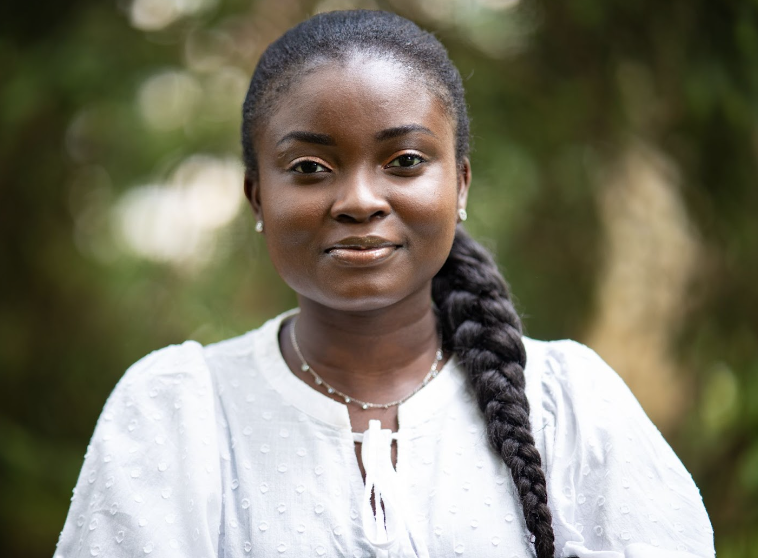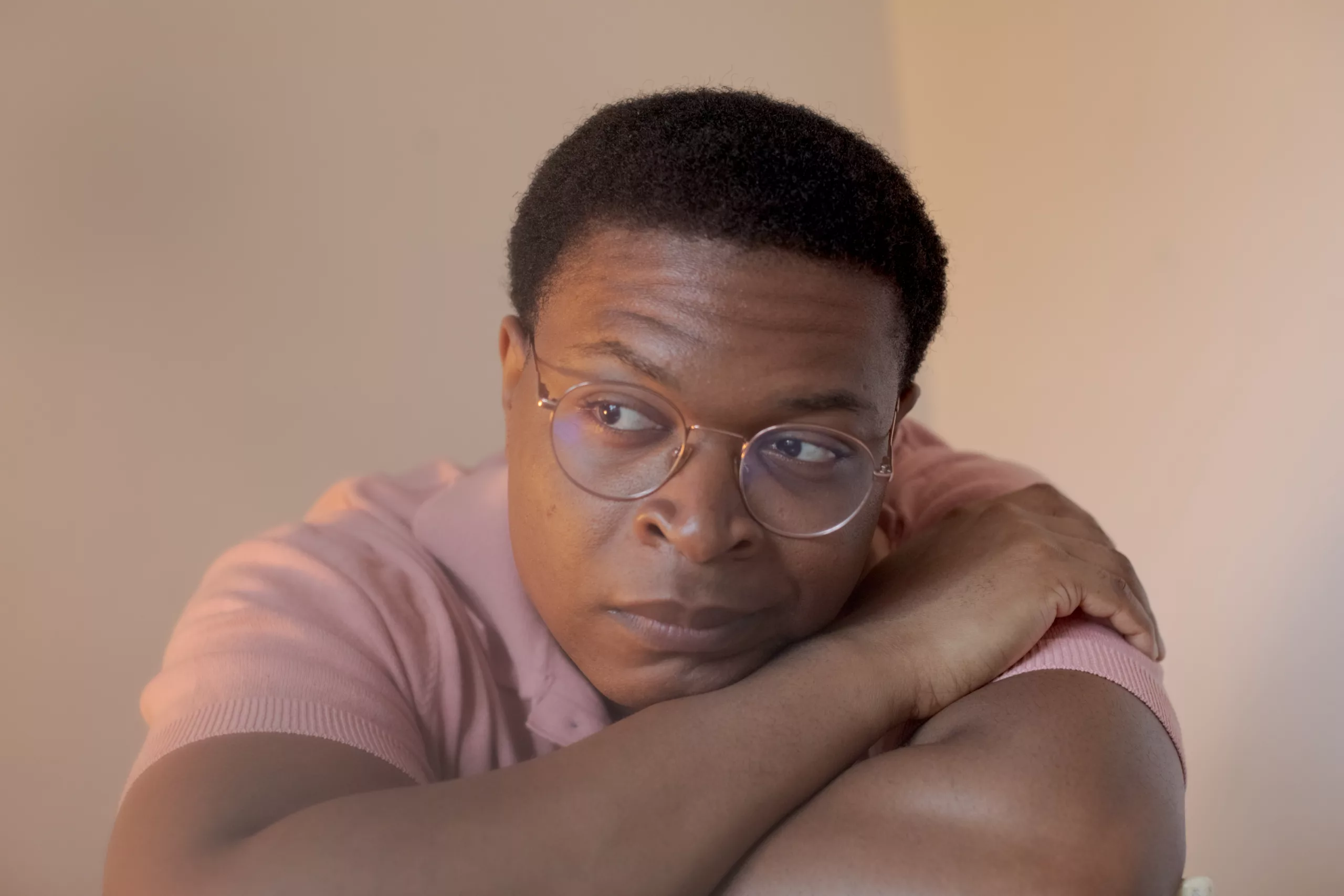As part of Documented’s new “Our City” interview series, we are speaking to prominent and influential New Yorkers who have deep connections to New York’s immigrant communities, some of whom are immigrants themselves. We ask them about how they made New York City their own, where they feel most connected to in the city, current projects, and more.
HEARING MY FIRST GENERATION Nigerian American cousins imitate their parents’ accents when spilling the latest tea is always a joy. The way they effortlessly switch from their American accents to a Nigerian one always leaves me laughing. I’ve come to understand my accent a little more, especially after moving to the U.S. a few years ago and listening to my non-Nigerian friends attempt to imitate me when I speak. We pronounce words a bit more emphatically, with more enunciation. Every vowel and every consonant is almost always heard as we tend to vocalize almost every letter in a word, and sometimes, with a sing-song intonation.
And so, when I saw the Nigerian American, Amara James Aja, 32, who was born in Montreal, Canada, to Nigerian parents but moved with them to New York City at 2 years old, act a solo stage performance about a Nigerian man’s experience in ICE detention at The People’s Forum in March, I knew the Nigerian accent he adopted was spot on.
Seeing him switch accents and personalities with accuracy and precision as he embodied each character in the play — Edafe Okporo, a U.S. immigration officer at JFK airport who detained Okporo, Mohammed, and a trans woman who Okporo met in ICE detention — made the play even more exciting to watch.
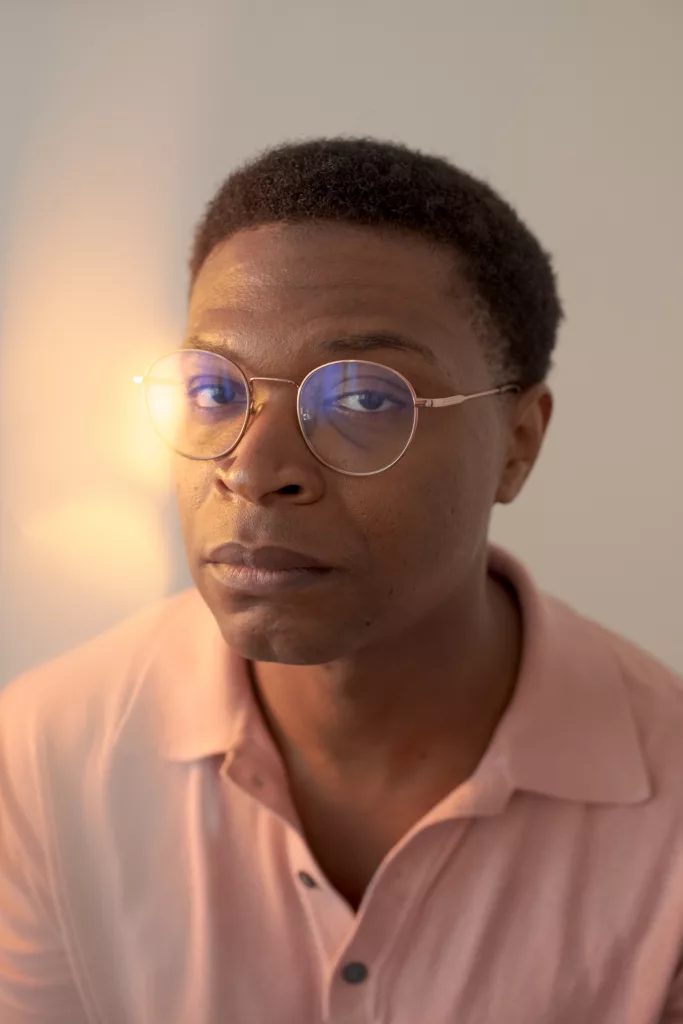
“Do Not Tell Them I Am A Prince” explores the harrowing realities of U.S. immigrant detention based on the real-life experience of a Nigerian, Edafe Okporo, who spent almost six months in New Jersey’s Elizabeth Detention Center in 2016.
Okporo has lived to tell his story in print, as a memoir, and in theater through his 15-minute one-man play, which has been performed by “The Wire,” actor Gbenga Akinnagbe, and most recently Aja, whose previous works include acting performances in “Madam Secretary” and “Search Party.”
While what happened to Okporo took place in 2016, his experience still holds true to many who are being detained today. At the panel discussion that took place after the performance of the play, advocates for the Dignity Not Detention Act spoke about the realities of ICE detention in New York and the shortcomings of New York State’s response to people seeking asylum.
“I don’t think that you can listen to Edafe on that panel, or on the other panels that I heard him on, over the tour that this piece went on, and think that what happened to him was anything but torture,” Aja told me. “That could happen to anyone. I felt that it was important to do my best to tell that story.”
Aja is a long-time New Yorker, with a classical theater background, which I could see during his acting performance. Today in New York City, he teaches at The Professional Performing Arts School in NYC where he was nearly laid off in April because of Mayor Adams’ Department of Education budget cuts. But thanks to a 12-year-old who organized a Go-Fund-Me which caught the attention of “The Bear” actor Jeremy Allen White and Alicia Keys — who are alums of the school — he and other faculty members were not laid off. Seventh grader Tennyson Artigliere and her classmates helped raise enough money to finish out the school year as planned.
One thing that stood out when you were done performing the play was that it appeared as though the audience didn’t want to interrupt the purity of the performance. We sat still. So engrossed. But you were done. We were perhaps waiting for your cue to applaud. Is this a common thing, that people just sit still after a performance? How did it feel?
No. It’s never happened before this piece. I was deeply confused. I talked about it with NJ Agwuna, the director. And she was like, you’d have to say thank you. I was like, yeah, but then, what do I do? The lights don’t go down, I can’t go anywhere. It was incredibly gratifying. But it was also like, now the piece is done. Like, thank you all very much for your attention.
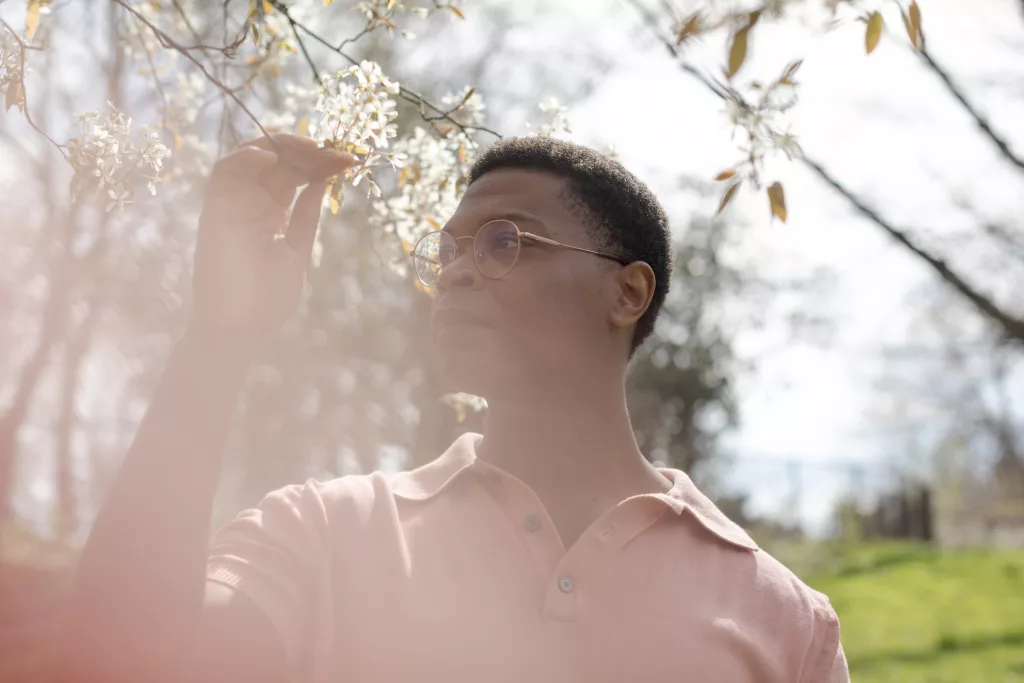
No, we were hypnotized. I observed it and I was like, huh, does this happen a lot? Okay, that’s good to know.
So, over the course of three weeks, you performed the play in Albany, Westchester, Queens, and Manhattan. What has been a major highlight and your favorite memory?
A bunch of my students came to see the performance at The People’s Forum on Tuesday. That was very sweet of them. It made me very happy. That’s up there.
The first performance of the play in Albany is also up there. Hearing the stories that people felt compelled to share after seeing the work was a really important reminder of why it is that you put this work into the story.
During the post-performance panel discussion, Edafe mentioned asking you beforehand if you were feeling okay, and if you were comfortable portraying a gay character as a straight man. He said you responded affirmatively, expressing your commitment to play the role. Could you elaborate on your response to him and your decision to take on the role?
The story is incredibly important to tell. It was really heartening, and touching to me as a straight person to be entrusted with telling the story of a queer man with a queer director. To be in a position and to receive the feedback that I told it well, is important.
But, the things that resonated with me about the story: this is a person who didn’t feel like he fit in at home, thought that there was a place where he would be free and be safe, and made the incredibly brave and incredibly difficult step to pursue that freedom. And then, to be met with imprisonment? The reality of that — to quote Lorraine Hansberry, the specificity of something that makes it universal, and the idea of this person making the choice to try to improve his life and for reasons entirely beyond his control, being tortured — essentially, I don’t think that you can listen to Edafe on that panel, or on the other panels that I heard him on, over the tour that this piece went on, and think that what happened to him was anything but torture. That could happen to anyone. I felt that it was important to do my best to tell that story.
What depths of memories or personal experiences do you have to tap into to do the performance? At the end of the play when the character alludes to Edafe’s Grandmother, it made me wonder if you had a relationship with grandparents especially because you were born and raised outside of Nigeria.
I met my maternal grandfather when I was in Nigeria and then he passed shortly after that. My maternal grandmother lived in the States with my mom for a number of years. So we have a little bit more of a relationship. But I think that I don’t want to go down the rabbit hole of acting technique.
“I don’t think that you can listen to Edafe on that panel, or on the other panels that I heard him on, over the tour that this piece went on, and think that what happened to him was anything but torture.”
My mind was literally going there.
I think if you understand the specific relationships you have with the people in your life, obviously that will inform your work. The thing that I’m thinking of now, having been in this story even though I don’t know this is what I was thinking of at the moment I was performing it, is my parents working all of the time. They moved across an ocean and across the country twice to do these things.
There was a period of time where I was living with my father in the Bronx, and going to Mark Twain, which is in Coney Island. Every day, we were in the car for two hours, driving from where we lived to where I went to school and back every day, so that we can have the best. So as a person, I definitely have a personal understanding of the lengths that family can go to care for members of their family. I don’t know how much of that is in my head at the moment when I’m on stage.
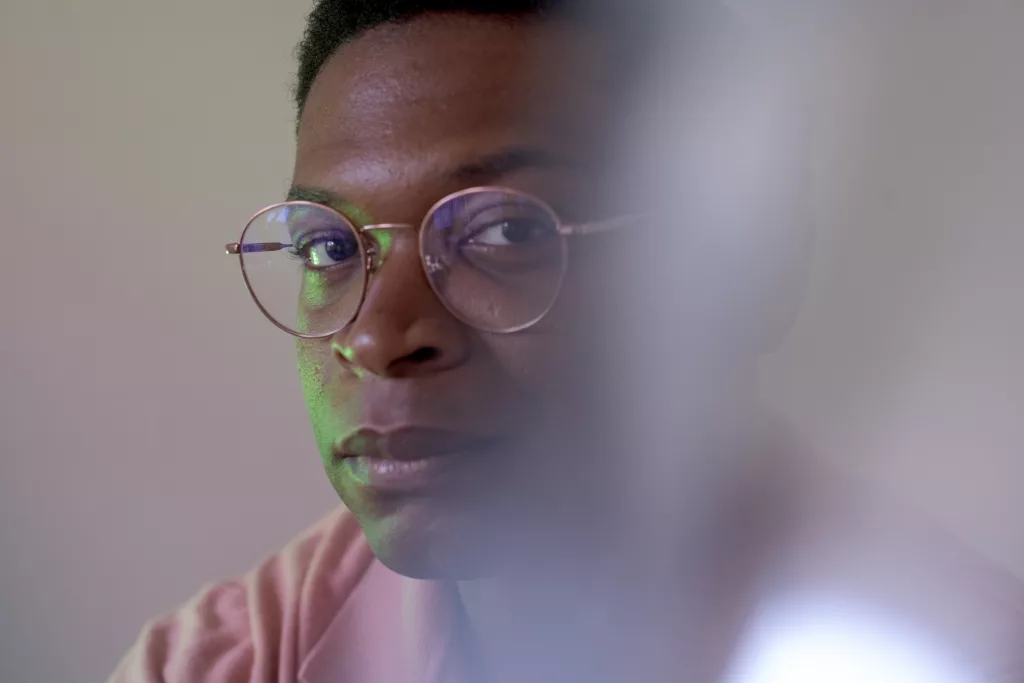
That’s fair. I could say that’s positive in the sense that you can completely separate the emotions that your character is supposed to be feeling from your own emotions in real life, in a way that it doesn’t affect your real life self?
This is also a conversation that I’m having all the time with students. They are like “Oh I want to really feel it!” Well, maybe, right. One of the benefits of good writing is if you trust that the playwright has put the words that you need on the page, you might not necessarily need anything more than ‘I was imprisoned for six months. Then I got out, and the first thing I thought of was how my grandmother made it possible for me to be here.’
Apart from this play on Edafe Okporo’s life, what projects or active projects are you currently working on, if any?
I’ve got a couple things in the pipeline. I’ll be doing a production of ‘Love’s Labour’s Lost’ with Smith Street Stage, which is a Shakespeare Company on the other side of the park.
I’ve also been in conversations with a friend of mine from grad school, and we are trying to adapt a Dario Fo play for the New York City context. We’ve done the most preliminary work, so this is months or years down the line. But the play is called, ‘The Accidental Death of an Anarchist.” It’s a clown show about the police, essentially. It’s from Italy in the ‘70s.
It’s hard to be a New Yorker now — and at least to be a New Yorker and like, in my position with my worldview — and not feel a type of way about the role that the police have in our society. So, we’re looking at maybe an adaptation, revising and doing some writing about the sort of the time that we are living in right now and the increasing militarization and criminalization of our public spaces, and the consequences.
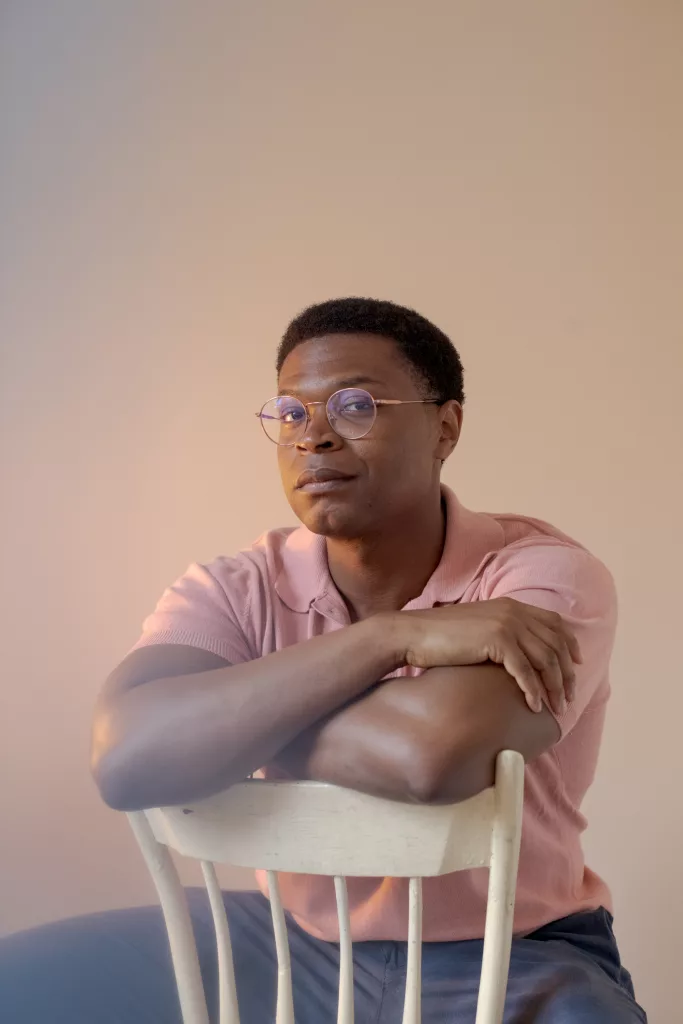
“Love’s Labour’s Lost” is one of William Shakespeare’s early comedies. You also acted in “Hamlet” at The Old Globe a few years ago. What is it about Shakespeare that you like so much?
The main thing is the language. To quote a line from “The Tempest”…
I love “Tempest.” My high school English Literature teacher made us memorize and perform lines in front of the classroom.
Great play! My mom was an English teacher for 25 years in the city. And so there were always a lot of books in the house, including Shakespeare. So I read it very early on. I don’t think that it ever really hit me until I started performing it.
But anyway, the line from “The Tempest” that I think is really interesting to me as a Nigerian American who has come to love the most British of performance styles, is: “You taught me language, and my profit on’t is I know how to curse. The red plague rid you, for learning me your language!”
There’s just something that feels very Nigerian to me about this thing that we were handed at a point-of-a-gun, kind of, the language and this cultural production, I’m going to excel at. I think it’s really beautiful. If you look at what is happening in most of those Shakespearean plays, I think it’s interesting the ways those plays have been used as the vanguard of colonial culture. So much of what’s happening in those plays still has a lot to offer us and the time that we’re in now.
I think it’s really important to not understand ancient history as white and perfect and clean and as evidence of the superior or acculturated-ness of Europeans or British people or English speakers. It’s one of the reasons that I really enjoy teaching Shakespeare to New York City public school kids.
How would you describe the past seven years of your career in two minutes?
Oh, man. Uhh…
I say seven years because it’s seven years since…
…since I finished grad school. No, that’s impeccable research. I think the summary of the past seven years would be personalization. I fell in love with acting because of Shakespeare. Then, I went to a graduate program and spent a lot of time doing Shakespeare. But the vast majority of the work that I did was on classical pieces, which I still love.
One of the things that I’m still working on finding now is the ‘why’ of me in theater, in film, and classical pieces. What is it that I specifically have to offer? What is the thing that is so attractive to me about these old stories? Trying to find an answer to those questions.
“It’s really important to not understand ancient history as white and perfect and clean and as evidence of the superior or acculturated-ness of Europeans or British people or English speakers. It’s one of the reasons that I really enjoy teaching Shakespeare to New York City public school kids.”
I trust that you will find them because I’ve seen you perform live.
Recently, Jeremy Allen White and Alicia Keys put out a call and pledge for funds for The Professional Performing Arts School in NYC, where you teach, following the GoFundMe that was organized by a seventh grader at the school to raise money to cover the school’s financial needs which resulted from budget cuts by New York City’s Department of Education. Is this reality affecting you in any form? Are there talks of being laid off? What are your thoughts on it?
The thoughts are obviously complex, the first and most prominent thought is always frustration at the way that as a city, as a state, as a country we ascribe priorities. I grew up in New York City for a significant portion of my education. I was a student at New York City public schools. The deprioritization of high quality public education in all aspects — in every field. But I’m an arts educator right now. Instruction in the arts is important, and to be at the frontline of the deprioritization in favor of — I honestly couldn’t tell you what — is saddening, and frustrating.
I’m an artist, and I don’t think that art is the sole province of the wealthy or the well to do. I think that a city like New York, which claims to be great — which I have found in my time here to be great — is made great by the reality that people have access to these high quality public services. That you can come here and the city can make opportunities available for you to forge a path for yourself, to make a name for yourself. In the words of Alicia Keys, right, ‘This is the concrete jungle where dreams are made of,’ you know. I think there’s something to that. I wish our leaders took the responsibility to make those dreams possible as seriously as — in my experience — the people who are working for those institutions do.
So there’s that frustration, but I think that one of the things that’s been really heartening to me in this time is the fact that our students, the parents who are sending these kids to the school, people in the community, alums of the program, recognize how valuable what it is that we offer is and are willing to support it.
A 12-year-old shouldn’t have to raise the funds for their own education. But I think that the fact that a 12-year-old felt they had the agency to speak up about something happening in the world that they thought was wrong and take steps to correct it, which has been incredibly effective, is beautiful. I hope that the lesson that she learns from this is the power of her voice, that the students and the parents who have organized to stop this, to stop this from taking place or to find a way around what we’ve been told is going to happen, they remember this lesson when they’re faced with other instances of policy that they think are unfair or unjust.
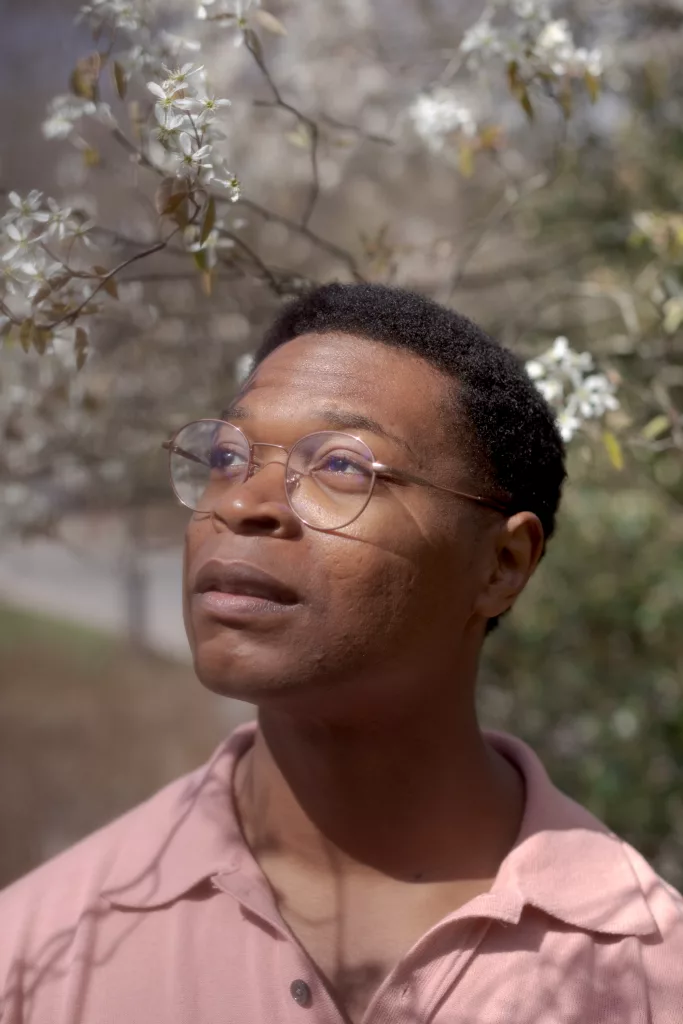
If the difficulties confronting the school were to lead to your termination, what would you have done afterwards?
I think that as an actor, stable work is an incredible luxury. I think the longest job that I’ve had as an actor has lasted about five months. That was in 2018. I was doing a production “In the Heat of the Night” at a repertory theater in Western Virginia.
I’ve never been laid off before. So that was, you know, saddening, and shocking and frightening. But I’m also quite used to tracking down work. I don’t know honestly what I would have done; I think I would have been fine. I would have been sad to lose the work. I am. But, I’d be okay.
“I think that the fact that a 12-year-old felt they had the agency to speak up about something happening in the world that they thought was wrong and take steps to correct it, which has been incredibly effective, is beautiful.”
You are a long time New Yorker; how long have you lived in New York City for?
I arrived in New York City in 1993 when I was two years old. I don’t have memories from Montreal, which is where I was born. So I’ve been in New York basically my whole life.
You are currently a Brooklynite but you’ve spent some time in Jersey, Long Island, went away to boarding school in Delaware, and to grad school in San Diego. How did your experience living in different boroughs and cities feel; how do you perceive the culture, neighborhoods, livelihoods of each borough in New York City?
I think the commonality has been that we’ve always lived around a lot of immigrants. Both my parents are from Nigeria. Growing up, when we were living in Brooklyn, we were in Kensington, where there’s a lot of South Asians, East Asians, South Americans, and Eastern Europeans. There’s just a nexus for a lot of different communities.
In the Bronx, there were a lot of Caribbeans and West Africans. One interesting thing for me about being a New Yorker is that the question, “Where are you from?” has never stopped in New York.
There’s always been a pretty clear line back to the places these people come from. My experience of New York is very much like a striver’s experience. My parents came here for a better life, all of their family and friends came here for a better life. Everyone that I knew around me was in New York for these reasons. There were people who have been here for some time, but not a lot of people who have been here for multiple generations.
“My experience of New York is very much like a striver’s experience. My parents came here for a better life, all of their family and friends came here for a better life.”
That’s a fair analysis, or perspective. At what point did you realize New York was yours or authentic to you?
I think when I left. You never know what you have until you don’t. I went to a boarding school in Delaware, which was close to New York. That’s about a two and a half hour drive down the turnpike. It’s not very far. But there’s also a socioeconomic thing. Both my parents were public employees, pretty solidly middle class. But there’s a difference between solidly middle class and like ‘I am paying for this $50 to $60,000 a year private high school’ out-of-pocket. There’s a real social difference. The exposure to that was definitely shocking. I remember feeling deep confusion.
Growing up in New York wasn’t good preparation to deal with people and the rest of the world. I just remember thinking about the many different sorts of people that I had grown up around and the homogeneity of the people in this place [Delaware] who were exhorting us to leave our bubbles and feelings.
One thing I love about New York is how much access there is to people from everywhere. There isn’t always — but there can be — a real open mindedness that comes from the obviousness of how many different sorts of people there are in the world.
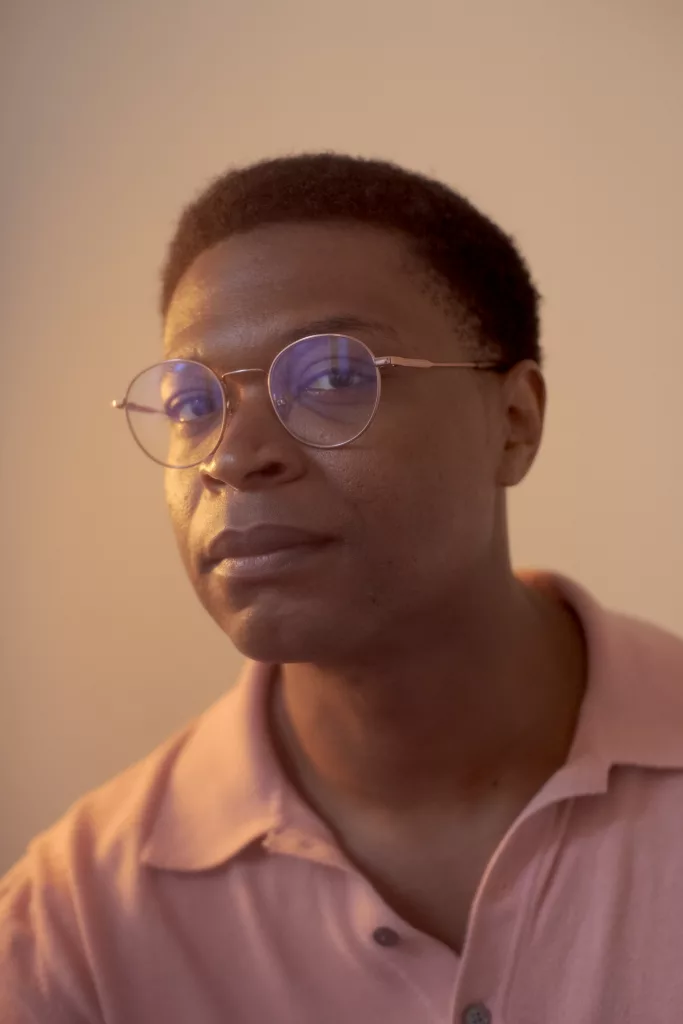
How has being raised here influenced your identity as a Nigerian American?
I have only been back to Nigeria once. I think I was like 6, 7, or 8. I was quite young, so most of my relationship to Nigeria is from my parents, cousins, and siblings — kind of. The hyphen in ‘Nigerian-American’ is doing a lot of work. I know that I’m from someplace but I don’t know if I have a connection to it that some other Nigerians and ‘Nigerian-Americans’ have.
But the thing about being in New York — and this is true more now than it was when I was a kid — African-ness and Nigerian-ness specifically is much much cooler now than it was when I was young. There are ways to be connected here. It’s easier to get foods I grew up eating at home. There’s restaurants. The music is everywhere.
“The hyphen in ‘Nigerian-American’ is doing a lot of work. I know that I’m from someplace but I don’t know if I have a connection to it that some other Nigerians and ‘Nigerian-Americans’ have.”
Would you say you are Nigerian enough to argue about the Nigerian jollof rice supremacy — as you confidently added in your bio?
Of course. Always. I can make Nigerian jollof. I’m proud of that. I’ve had honestly long conversations on the phone with my mother about the steps to take. But that’s another thing that feels kind of like a New Yorker thing to me as well. I went to elementary school in Bay Ridge and there were so many stand ten toes down on being Italian Italians who couldn’t speak a lick of Italian but every Columbus Day, they show up in green, white, red, and every St. Patrick’s Day the Irish Americans wear their colors. I even know Puerto Ricans and Dominicans who don’t speak a lick of Spanish. So I have company.
Can you speak Nigerian pidgin English?
Sort of, I can understand it. When I went to Ghana, I would speak to people in Pidgin and they were like, Nigerian? And I was like, I know some things, I guess.
Do you have any subway stories or experiences you would like to share? Maybe not the subway, if you don’t have one. But it could be a story of you walking on the street in New York or something. Something is always happening on New York City streets and the subway.
I’ve honestly had very uneventful times on the subway, but a friend of mine in high school, who was not from New York, came up to New York City for a weekend. This is a very dumb story but it’s the first thing that came to mind. He had some change in his pocket and reached in to grab his wallet or his MetroCard, or something. He was leaving the train and all of his coins fell out. He looked and then just decided to leave it and run out.
But somebody on the train just grabbed all the change and was chasing him down the platform: “You dropped your change! You dropped your change!” The aggressively helpful, loud, and brash, but with-the-heart-in-the-right-place encapsulates something about the city to me.
Also Read: Saheem Ali’s Mission to Center People of Color On Broadway
This interview has been edited for clarity and concision.
